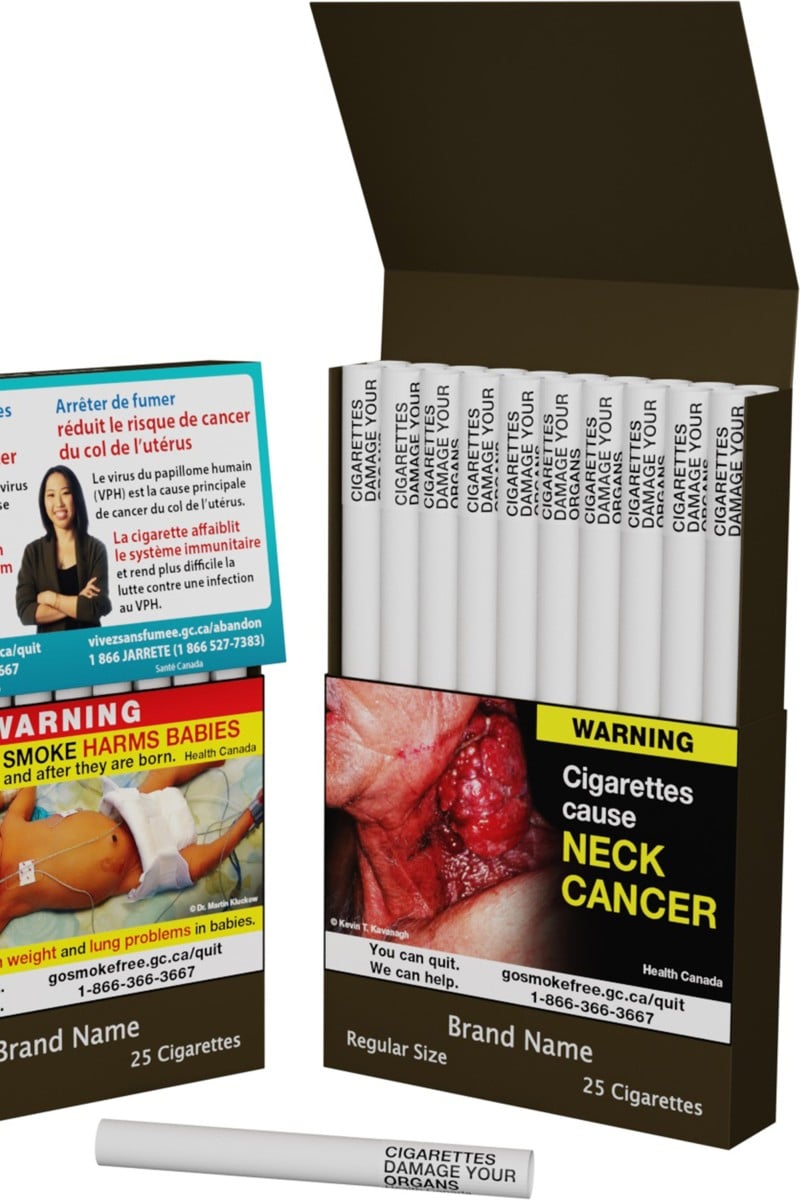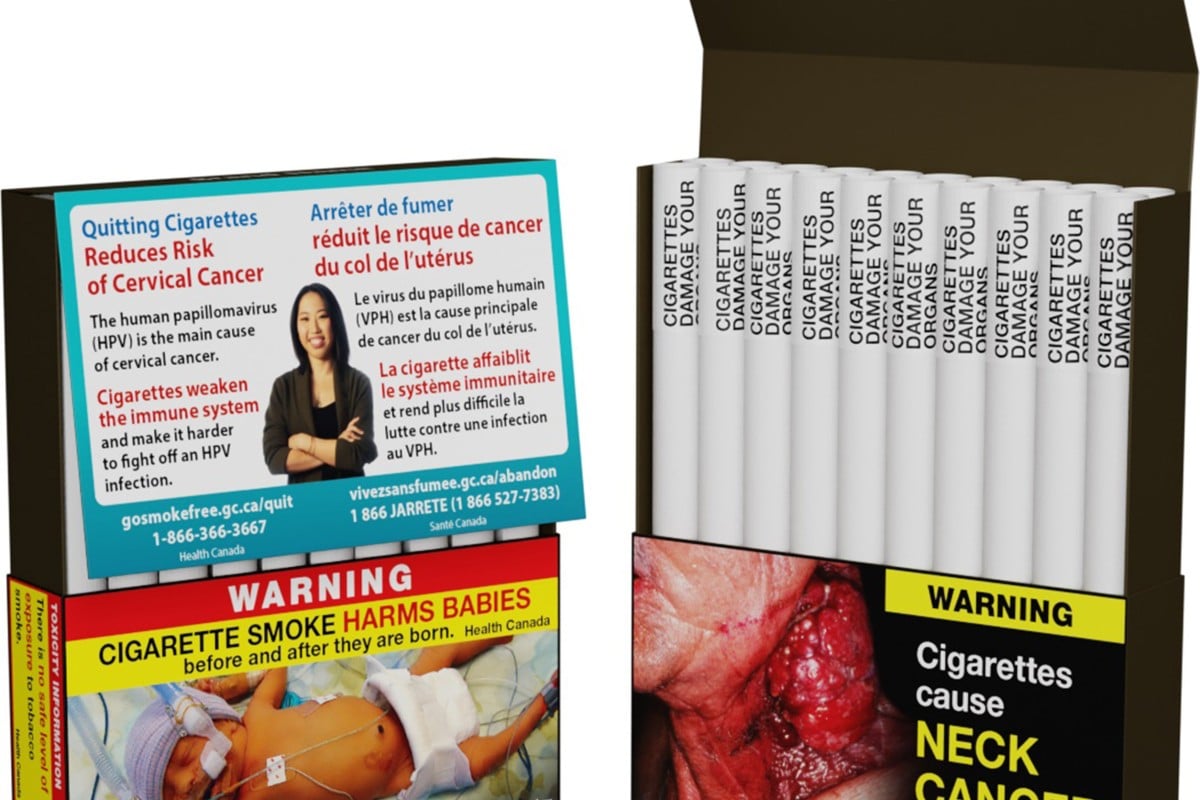
The Lens: Canada will be first country where warning labels appear on individual cigarettes
- The warnings – in English and French – include ‘poison in every puff’, ‘tobacco smoke harms children’ and ‘cigarettes cause impotence’
- Each week, we choose a picture from the news and provide questions to help you dive deeper into the topic
 This image from Health Canada shows the warnings that will be printed cigarettes. The regulations take effect in August and will be phased in. Photo: Health Canada/TNS
This image from Health Canada shows the warnings that will be printed cigarettes. The regulations take effect in August and will be phased in. Photo: Health Canada/TNSHave some thoughts on this issue? Send us your response (no more than 300 words) by filling out this form or emailing [email protected] by June 7 at 11.59pm. We’ll publish the best response next week.
Observe and read
-
Have you noticed warning labels on cigarettes like those shown in the picture?
-
Based on the news snippet, what could be the reasons that warning labels must appear on individual cigarettes?
News snippet
Associated Press
Canada will soon become the first country in the world where warning labels must appear on individual cigarettes.
The move was announced last year and is aimed at helping people quit the habit.
The regulations take effect on August 1 and will be phased in. King-size cigarettes will be the first to feature the warnings and will be sold in stores by the end of July 2024, followed by regular-size cigarettes, and little cigars with tipping paper and tubes by the end of April 2025.
“This bold step will make health warning messages virtually unavoidable,” Mental Health and Addictions Minister Carolyn Bennett said last Wednesday.
The warnings – in English and French – include “poison in every puff”, “tobacco smoke harms children” and “cigarettes cause impotence”.
Health Canada said the strategy aimed to reduce tobacco use below 5 per cent by 2035. New regulations also strengthen the health-related graphic images displayed on packages of tobacco.
Bennett’s statement said tobacco use killed 48,000 Canadians every year.
Doug Roth, chief executive of the Heart & Stroke charity, said the bold measure would ensure that the dangers to lung health cannot be ignored.
The Canadian Cancer Society said the measure would reduce smoking and the appeal of cigarettes, thus preventing cancer and other diseases.
Rob Cunningham, senior policy analyst at the Canadian Cancer Society, said health messaging would be conveyed in every puff and during every smoke break. Canada, he added, would have the best tobacco health warning system in the world.
Tobacco advertising, promotion and sponsorship are banned in Canada. Warnings on cigarette packs have existed since 1972.
Research and discuss
-
Compare the effectiveness of warning labels on individual cigarettes against the existing ones.
-
Should Hong Kong follow suit? Explain.
Would a generation ban on buying cigarettes shrink the number of smokers?
Thoughts from last week
Sophia Ling, German Swiss International School
Netflix’s crackdown on password sharing has been controversial. The company says that accounts are for use by one household only, and that users who share passwords with people outside their family risk having their accounts deactivated. Netflix has experimented with “borrower” or “shared” accounts in some markets, where subscribers can add extra users for a higher price or transfer viewing profiles to separate accounts.
One reason for Netflix’s crackdown is to protect its revenue. The company pays royalties for the content it streams, and non-paying viewers who use shared accounts could add to its expenses while not contributing to its revenue. This could affect the company’s ability to invest in new content.
Another reason is to encourage people to pay for the service. While password sharing may be common among younger generations, I believe many older users already pay for their own accounts. By cracking down on password sharing, Netflix is encouraging those who are not paying for the service to start doing so. The company wants to do this without making subscribers leave, suggesting that it is taking a measured approach to the issue.
However, there are also potential consequences to Netflix’s move. Some users may opt to stop using the service altogether, while others may switch to rival streaming services. This could affect Netflix’s revenue and market share.
The Lens: Netflix password crackdown expands to more than 100 countries
